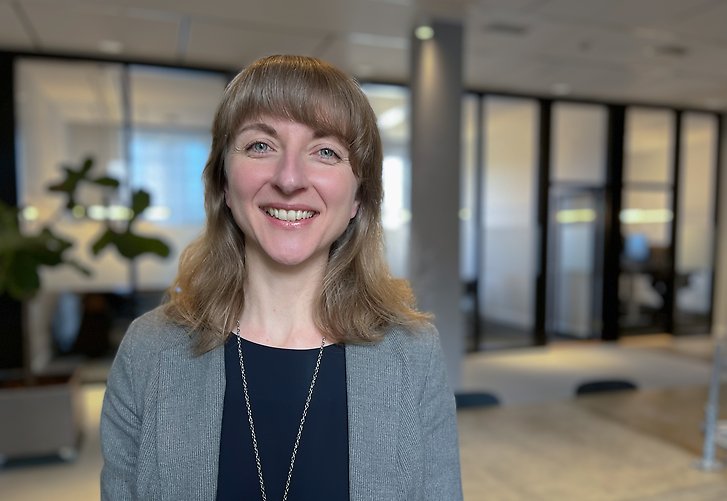
Embracing the future of intuitive and human-centric technology
Elzbieta Wiltenburg has been with Aleido since 2016, working as a technical communicator, information architect and innovation manager. Originating from Poland, but located in Stockholm since 2014. With her education and experience, Elzbieta was naturally drawn to understand the impacts that Artificial Intelligence (AI) will have on our private and professional life. To imagine the future scenarios means to consider both the opportunities and the potential pitfalls.
In my role at Aleido, I find myself in the centre of a significant shift. What we experience right now is more than just technological advancement; it's a new way of how we think about and interact with technology. The technology is transforming, becoming more accessible and intuitive for everyone, regardless of their technical expertise.
The transer of valuable skills
It is fascinating to observe this change, and for me it is a privilege to be part of it. It also feels like a natural continuation of my previous carrier choices. I am a psychologist from education who practised neuroscience for quite a few years. The shift from neuroscience research to technical writing isn't just a career change but a transfer of valuable skills. It highlighted the critical skills shared between neuroscience and technical communication: ability to quickly grasp complex issues, dissect interconnected systems, and translate specialized knowledge into accessible language. These skills, combined with the psychology background, are essential in my understanding of the paradigm shift that we are witnessing.
My engagement with generative AI has redefined my perceptions of human cognition, human language and cognitive development. The exploration of generative AI, its abilities and limits, sparks questions about what differentiates us from the machines we create. Even if those questions are deeply philosophical and seem far from the more pragmatic use cases, I feel drawn to consider them and reflect on them. The answers to such questions will at the end shape our attitude to the AI assistants and to the work and art created by them or by using them.
"On the one hand, we must adapt to new ways of working with technology, conversing with the technology, and allowing it to perform certain actions while still maintaining a good level of supervision. On the other hand, we must mold the technology to comprehend and collaborate with us more intuitively. How do we make sure that an AI assistant has all the necessary knowledge to answer our question or perform a task?"

Making technology more human-centric
We are moving towards technology that aligns more closely with our cognitive preferences and our natural ways of expressing ourselves. The technology of the very near future can understand not just our spoken language but also our movements and gestures, making technology more intuitive and responsive to our needs. The technical solutions become more human-centric instead of us adapting both physically and mentally to the new technology.
For me, Artificial Intelligence, and generative AI in particular, represent not just a tool but a partner in clarifying thoughts, optimising workflows, and exploring the vast expanse of human knowledge. It's paving the way for new forms of creativity and exploration that were previously unimaginable. I hope that in the future the technological advancements will deliver us helpful assistants and not just a high number or high-tech tools with doubtful usability. We are not there yet, but we have started the journey of developing such complex systems. The first step in such a journey is to imagine the possibilities and to decide on the vision that we want to see come true in the future.
Collaborating more intuitively
The potential for AI to serve as a conversational assistant and to transform our interactions with technology is immense. For this evolution to be successful two symbiotic learning process must take place. On the one hand, we must adapt to new ways of working with technology, conversing with the technology, and allowing it to perform certain actions while still maintaining a good level of supervision. On the other hand, we must mold the technology to comprehend and collaborate with us more intuitively. How do we make sure that an AI assistant has all the necessary knowledge to answer our question or perform a task? How do we create the architecture of such assistant so that it can perform logical operations on our questions and generate complex operating procedures or conclusions?
The thrill of the future
Looking forward, I am optimistic yet cautious. The prospect of technology that can more naturally interact with us—through understanding our speech, recognizing our gestures, and accommodating our movements—is thrilling. Yet, it's crucial that we proceed with a mindful approach to ensure that these advancements enrich rather than complicate our lives and stay true to the ethical standards that we value.
To sum up, the paradigm shift in technology is reshaping our relationship with the digital environment. Being a part of this journey at Aleido is both a privilege and an exciting challenge, and I believe it will lead to significant improvements in how we live and work.
FACTS
Name: Elzbieta Wiltenburg
Title: Technical Communicator, Information Architect
Education: Psychology and neruoscience
Worked at Aleido since: 2016
What kind of possibilitarian are you: The one that says: “Imagine, what if…what if it could be possible!”
About Aleido Voices
A series of articles for everyone wondering what it’s like to work at Aleido. With Aleido Voices our employees get to highlight certain exciting aspects of their jobs.

Contribute with your perspectives
Join a people-oriented, collaborative, and forward-thinking environment where your skills and perspectives are valued. We are the people who make the advanced simply understood.



